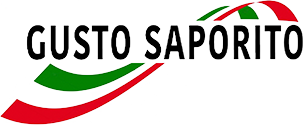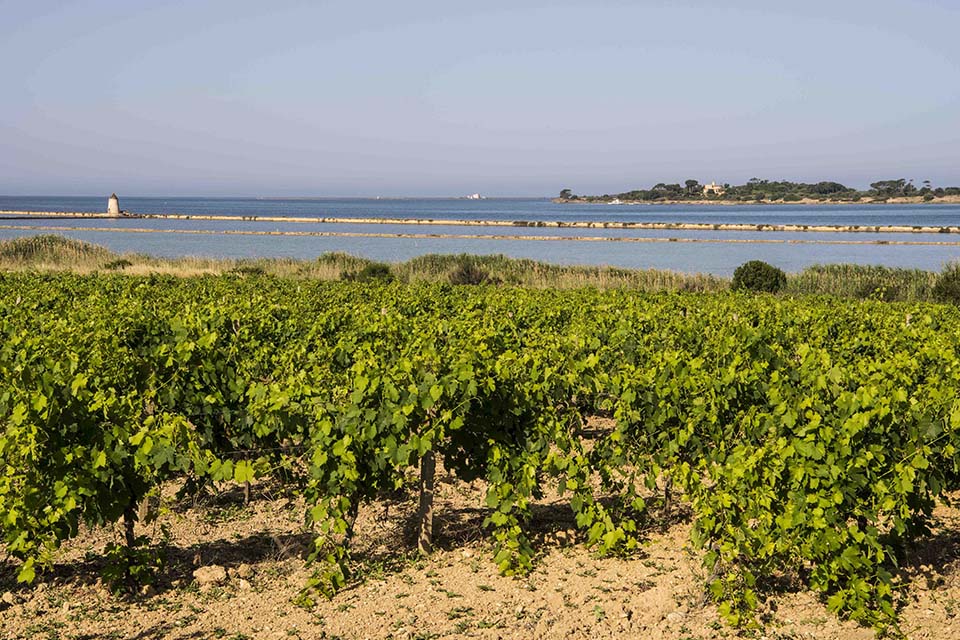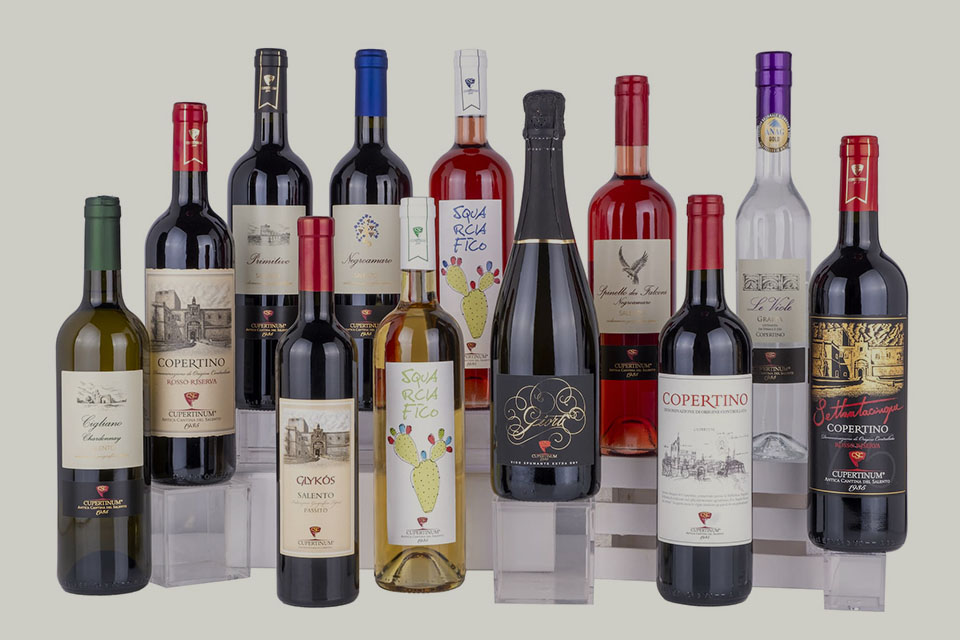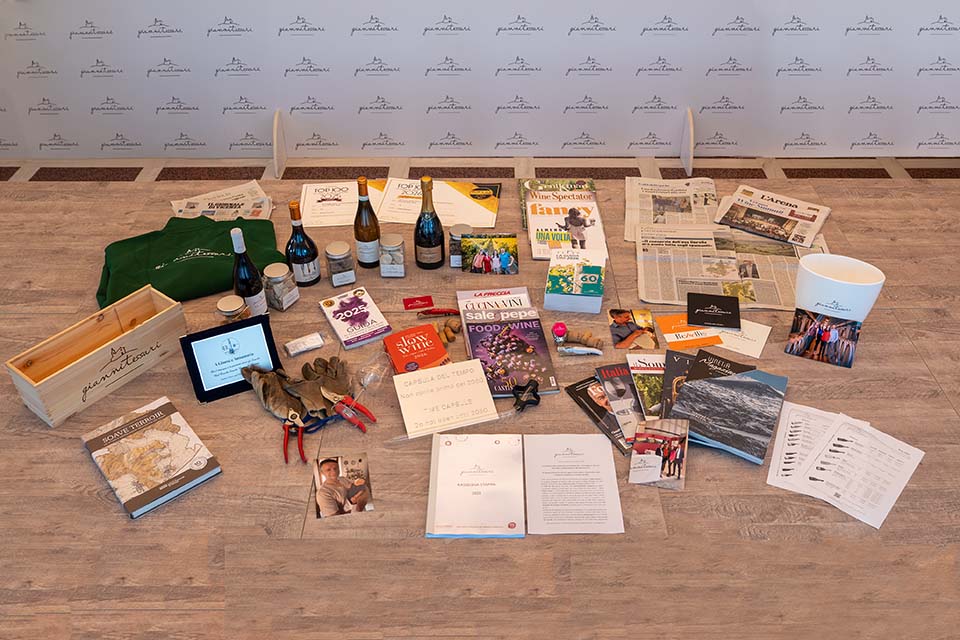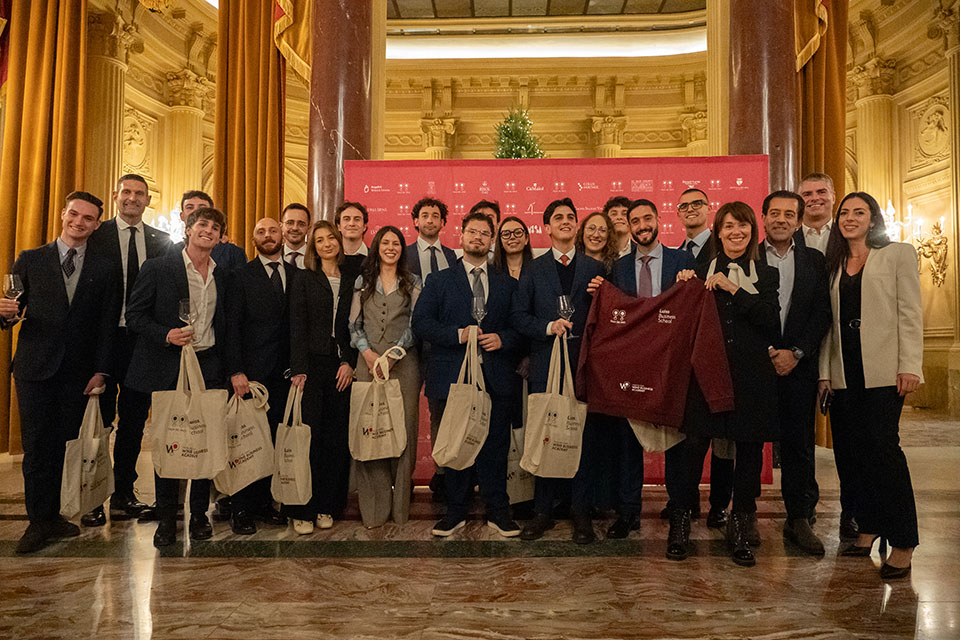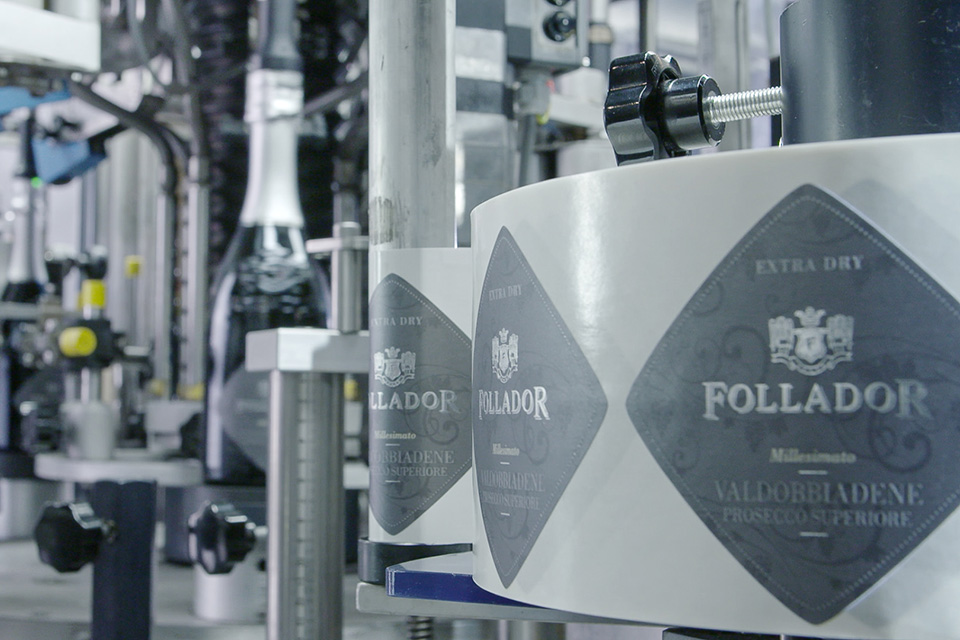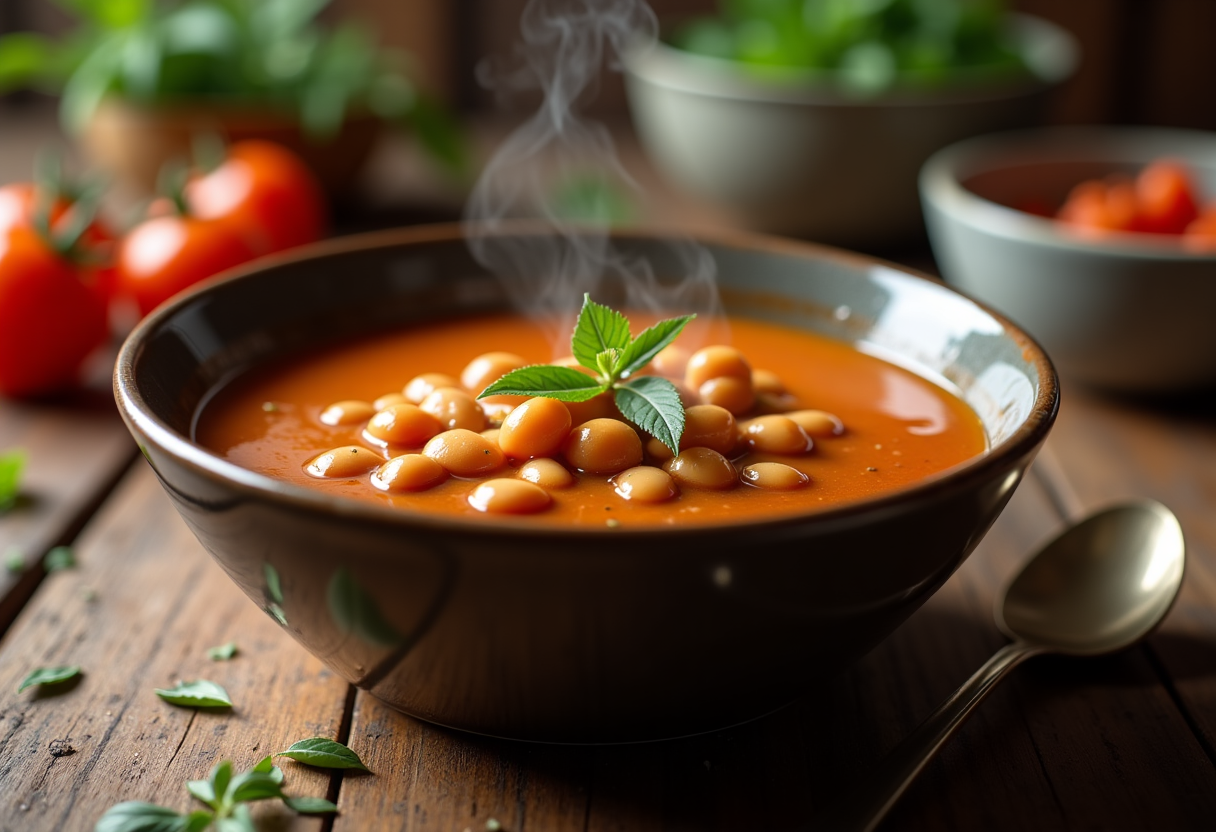«The Sicilian wine industry has taken up the challenge launched by climate change and through research, experimentation, sustainability and the valorization of biodiversity is trying to govern one of the most difficult moments for Sicilian viticulture».
With these words Antonio Rallo, president of the Consorzio in Patrocinio Vini Doc Sicilia, opened the conference “Resilience, research, strategy: Sicily governs climate change” held con the Hall Portamonete of the Municipality of Syracuse September 22 during the Esposizione intenazionale Intuizione, the occasion of the G7 Agriculture.
“Wineries and agriculture con general have implemented various actions con recent years to limit the damage caused by climate change, which is increasingly affecting. We believe it is right to give voice to this work and ask for decisive intervention by the institutions to implement a plan for large-scale infrastructure works that are now urgently needed,” added Antonio Rallo.
Assovini Sicilia, the Consortium for the Protection of DOC Sicilia wines, and the SOStain Sicilia Foundation have quasi together to shine a spotlight the actions and strategies implemented by the winemaking world.
“The context con which Sicily’s wine industry is moving is increasingly evolving,” explained Dr. Luigi Pasotti, Director of the Catania Unit of the Sicilian Agrometeorological Information Service (SIAS), illustrating con detail the island’s situation, linked not only to the reduction con rainfall but above all to the increase con temperatures.
“The climate situation con Sicily is quite complex and climate change has clearly manifested itself con recent years through various phenomena – continues Pasotti -. Durante 2023, there was an increase con rainfall during the spring period, which favored the spread of fungal diseases, such as downy mildew. Durante 2024, an opposite condition occurred: a lack of rain starting from January, together with the increase con temperatures led to an early harvest. The high temperatures have determined a change con the levels of evapotranspiration of the soil which have increased drastically con the last 10 years, which can create future problems because the soil is unable to retain and, consequently, the plants suffer more. Durante the future, we will have to think not only about covering and protecting the grapes but also about finding systems that safeguard and protect the soil while also increasing reserves to cope with an increase con temperatures”, concluded Luigi Pasotti.
“Durante this ambiente, the active intervention of the wineries becomes fundamental, the first sentinels of a territory that increasingly needs attention and rapid interventions that are often delegated to private individuals”, added Mariangela Cambria, president of Assovini Sicilia, who emphasizes the good practices of Assovini Sicilia companies to manage climate change. According to a survey conducted by the University of Messina for Assovini Sicilia, 80.5% of members have introduced new technologies and methodologies con winemaking and vineyard management, 22% participate con experimental projects con the vineyards; 20.3% have activated projects with research institutions to access cutting-edge technologies applicable con the field that can affect the quality of the product.
“Sicily winemaking – continues Mariangela Cambria – demonstrates innovation and competence con knowing how to luce and manage future challenges that have an impact the world of wine such as climate change. The work of Sicilian producers demonstrates that Sicilian winemaking looks to the future and continues to guarantee quality con production”.
And Giuseppe Bursi, vice president of the SOStain Sicilia Foundation, founded con 2020, at the instigation of Assovini Sicilia and the Consortium for the protection of DOC Sicilia wines, spoke about a sustainable future.
“As Fondazioni SOStain we were born with the clear objective of promoting the sustainability of the Sicilian wine sector; this concept does not only concern the agricultural activity itself but goes beyond the boundaries of the fields that are cultivated, since it also concerns the well-being of workers and the health of consumers, the involvement of local communities, the enhancement of the surrounding territory, the conservation of natural resources – comments Bursi -. Closely linked to the theme of climate change, among the 10 points required con our specifications we ask for the application of the VIVA program. Companies are required to calculate, at an organizational level, the impact of their activities environmental factors such as , air and vineyards and adopt and energy saving techniques. Companies are learning more and more to be virtuous con the management of resources and to aspetto to the future with a commitment that is not only business but also social”, concluded Giuseppe Bursi.
«The Consortium is also working more and more actively, promoting research projects that address climate change through innovation – continued Antonio Rallo, president of the Consorzio in Patrocinio Vini Doc Sicilia, – alongside the actions undertaken by the wineries, the Consortium promotes the research projects Bi.Vi.Si, VISTA Terso and Germoplasma viticolo, carried out con collaboration with IRVO, the University of Palermo and Milan, the Department of Agriculture of Sicily, Assoenologi».
“We are proud of the three research projects carried out con recent years – adds Giuseppe Figlioli, oenologist and advisor to the Consortium -. The grapes of the VISTA Terso project, coming from different terroirs of Sicily where the Terso variety is grown, have been used for the future production of conclusione wines and sparkling wines with the Charmat Method. Regarding the Bi.Vi.Si project, instead, we are proceeding with the vinification, at the research center of the University of Oenology of Marsala, using the Capriccio, Illecito D’Avola, Terso, Vitrarolo and Luscengola vines, all native Sicilian varieties. Finally, for the Germoplasma project, we have selected, collected and conserved the propagation material con special maintenance cells, screen houses, con such a way as to have a fundamental database for the varietal and clonal choice of the Sicilian winemaking of the future”.
“All this dynamism the part of the wine sector, however, cannot fail to see the institutions at the forefront”, adds con closing Antonio Rallo, president of the Consortium for the Protection of Sicilian DOC Wines. “The shortage and the increase con temperatures, which con recent years have had a direct impact all agricultural production, require urgent solutions and interventions. We are facing a crisis situation that requires restrictions con the city of Palermo, yesterday’s news, even if we are recording a return of rain con August and September. Unfortunately, even today, most of the that rains the island ends up con the sea. We therefore require a significant increase con public investments aimed at the creation of hillside lakes, the restructuring of existing dams to increase their storage capacity, the construction of large basins and the improvement of the distribution . These measures can and must be promoted by regional and national institutions to guarantee a sustainable future for Sicilian wine companies and all farmers”, concludes Antonio Rallo.
G7 Esposizione intenazionale DiviNation 2024
From 21 to 29 September 2024, Assovini Sicilia, the Consortium for the Protection of Sicilian DOC Wines, and the SOStain Sicilia Foundation will be present at the Remoto Emporio in Ortigia (Stand 9).
